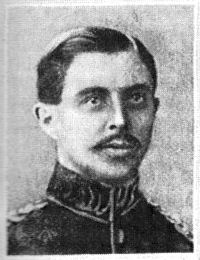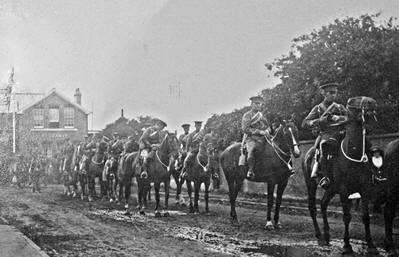Banbury was early astir yesterday (Wednesday) morning. Heavy rain fell for some hours and it was still falling at seven o’clock when the Banbury Squadron of Yeomanry began to assemble. From that hour onward, the Drill Hall in Crouch Street presented a busy appearance. Dr Tisdall Johns was busy medically examining the yeoman as they arrived. The Yeomanry will remain in the town at least four days. The Red Lion Hotel has been made the headquarters, and the officers there are Major, the Hon. Eustace Fiennes M.P., Captain Fell, Lieutenant G. Fiennes, Lieutenant Wilfrid Pepper (who motored from Devonshire), and Lieutenant Keith Falconer. Lieutenant Leslie Scott is exempted through illness. The Woodstock Squadron has broken up and the men of that squadron are sent off to Oxford, Henley and Banbury. Major F. Churchill will take over the Banbury Squadron and Major Fiennes will become second in command of the regiment. The horses are coming in well and there are very few men who have not yet reported themselves and most of these are already on their journey and are accounted for. Up to last night 100 officers and men were billeted in the town.
Banbury Guardian, August 1914

